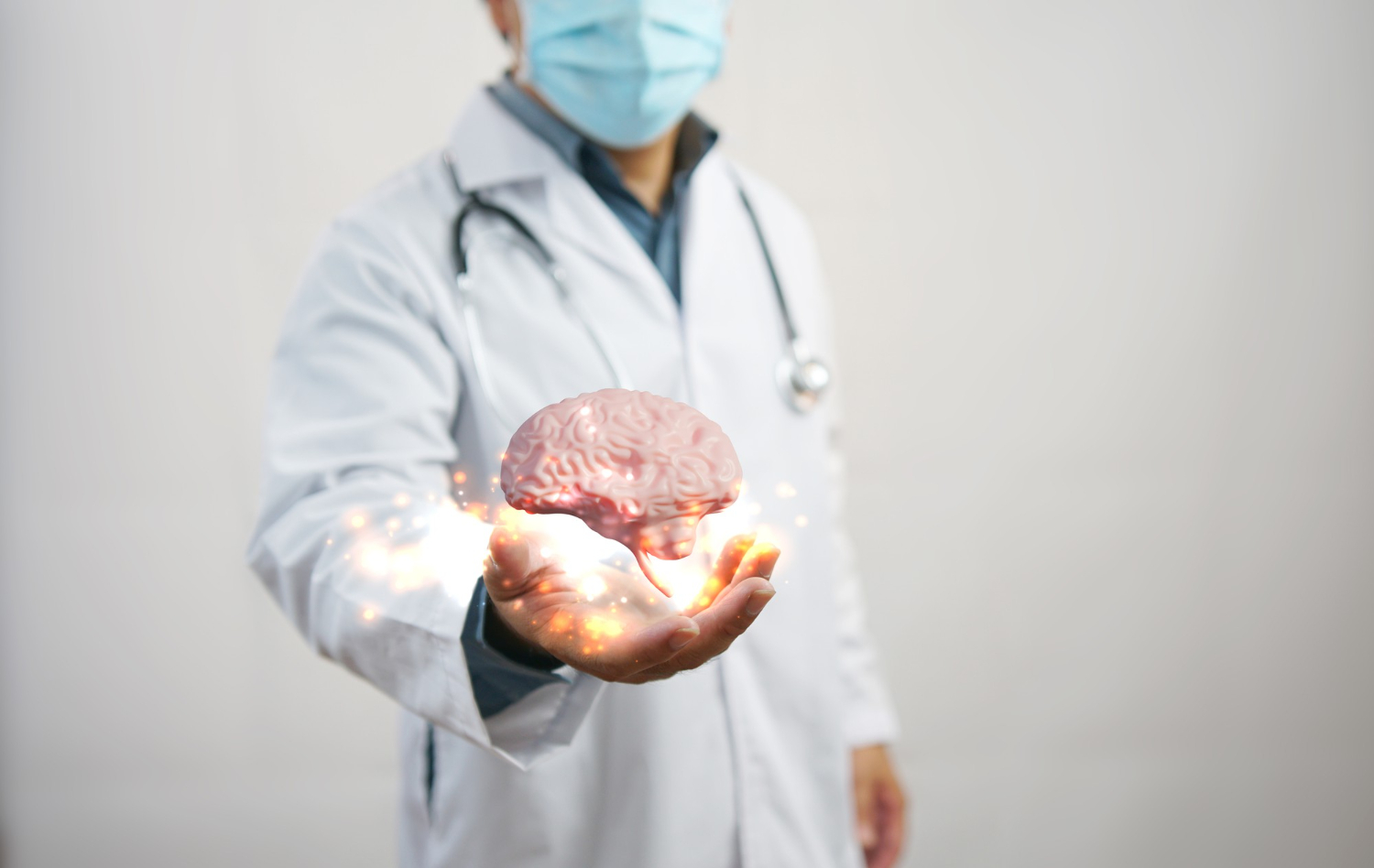Neurology

Neurology is a medical specialty dedicated to the diagnosis and treatment of disorders affecting the nervous system, encompassing the central and peripheral nervous systems, as well as the autonomic and somatic nervous systems. Neurologists, experts in this field, are trained to investigate, diagnose, and treat a wide range of neurological conditions, including seizures, strokes, autoimmune disorders like multiple sclerosis, movement disorders such as Parkinson’s disease, migraine headaches, and dementias like Alzheimer’s disease.
Neurological practice involves both inpatient and outpatient settings, where neurologists examine patients referred by other physicians. The process begins with a thorough medical history and involves a comprehensive neurological assessment that covers reflexes, cranial nerves, sensation, cognitive function, gait, coordination, and motor strength.
While neurology primarily focuses on non-surgical interventions, its surgical counterpart is neurosurgery. Neurologists often specialize in specific areas such as neuromuscular disorders, sleep medicine, epilepsy, pain management, movement disorders, headache, and stroke. In some cases, patients may be referred to neurosurgeons or interventional neuroradiologists for surgical or endovascular interventions.
Neurologists play a crucial role in clinical trials, clinical research, and basic or translational research, contributing to advancements in the understanding and treatment of neurological disorders. Lumbar punctures are among the common procedures performed by neurologists.
In certain countries, neurologists may have additional legal responsibilities, such as assessing comatose individuals. The field requires a multidisciplinary approach, and neurologists collaborate with other healthcare professionals to provide comprehensive care to patients with neurological conditions.
Aksha Hospitals boasts a leading Neurosciences department, recognized as one of the premier neurology and neurosurgery facilities in India. Renowned for breakthrough excellence, our Neurologists and Neurosurgeons consistently achieve outstanding outcomes comparable to global institutions. Our state-of-the-art Neuro-Intensive Care facilities and comprehensive Medical and Radiation Oncology services contribute to this success.
With a legacy of serving multiple generations in Telangana and Andhra Pradesh, Aksha Hospitals maintains infrastructure aligned with international standards. Our specialist doctors have made the hospital the preferred center for neurological care. Since its inception, Aksha Hospitals has been at the forefront of neurosurgery, equipped with the latest medical technology to address a spectrum of neurological conditions and diseases, including myopathies, Parkinson’s disease, Myasthenia Gravis, headache, epilepsy, multiple sclerosis, stroke, coma, and more.
At Aksha Hospitals, our Neurologists undergo global-level training in diagnosing, treating, and managing disorders of the brain and nervous system. They specialize in addressing diseases such as Parkinson’s disease, Alzheimer’s disease, migraine, stroke, and amyotrophic lateral sclerosis. Our Neurologists are uniquely equipped to diagnose evolving neurological ailments, including those with psychological origins, collaborating seamlessly with psychologists when needed.
Dedicated to neuroscience, Aksha Hospitals offers comprehensive medical care encompassing invasive and non-invasive treatments, diagnosis, rehabilitation, therapy, and continued care for patients with neurological conditions. We combine innovative technology with medical expertise to deliver industry-leading healthcare solutions. With a meticulous focus on detail, we provide accurate diagnosis and tailored treatment across various segments of neurology, making Aksha Hospitals a key player in the field of neuroscience.
When consulting a neurologist, the initial step involves a thorough diagnosis conducted by our team of highly skilled and trained doctors. Leveraging their expertise and utilizing our advanced equipment, we assess patients through manual neurological examinations, evaluating crucial physical aspects such as strength, reflexes, coordination, mental condition, eyesight, gait, and speech. Despite the integration of cutting-edge technology in medicine, the manual neurological examination remains paramount and indispensable.
In certain cases, neurologists may recommend additional diagnostic tests to further evaluate the patient’s condition. Common imaging studies like computed axial tomography (CAT) scans, ultrasound of major blood vessels in the head and neck, and magnetic resonance imaging (MRI) are routinely performed in neurology. Other frequently ordered studies include nerve conduction studies (NCSs), evoked potentials, neurophysiological studies, and electroencephalography (EEG). Lumbar punctures are also commonly performed to assess cerebrospinal fluid. Advancements in genetic testing have revolutionized the classification of inherited neuromuscular diseases and the diagnosis of various neurogenetic conditions.
Some of the standard diagnostic tests include:
1. Computed tomography (CT) or computer-assisted tomography (CAT) scans
2. Magnetic resonance imaging (MRI)
3. Electroencephalography (EEG)
4. Nerve conduction studies and electromyography (NCS/EMG)
Wondering when to consult a neurologist? It’s advisable to seek the expertise of a neurologist if you are experiencing conditions such as Parkinson’s disease, brain tumors, Tourette’s syndrome, or Amyotrophic Lateral Sclerosis (ALS). Our team is dedicated to providing comprehensive and accurate diagnoses, ensuring the best possible care for neurological conditions.
Neurologists at our facility are proficient in a range of procedures essential for accurate diagnosis and treatment. These include lumbar punctures and nerve conduction studies/electromyography (NCS/EMG). Our specialized neurologists, with expertise in various sub-specialties, perform advanced procedures such as autonomic testing, angiograms, coiling of aneurysms, as well as skin and muscle biopsies. Additionally, they excel in intraoperative brain and spine monitoring.
During consultations, our neurologists diligently address patients’ neurological concerns and delve into their medical history. The comprehensive neurological examination assesses vital aspects such as strength, reflexes, coordination, mental condition, eyesight, gait, and speech. This thorough evaluation aids in identifying the affected areas within the central nervous system.
Following the neurological examination, our neurologists leverage their expertise to determine the diagnosis. With a clear understanding of the patient’s condition, appropriate treatment plans are initiated. This patient-centric approach ensures a tailored and effective course of action to address neurological issues.
Our commitment to delivering high-quality care is reflected in our neurologists’ proficiency in diverse procedures and their dedication to understanding and addressing the unique needs of each patient.

